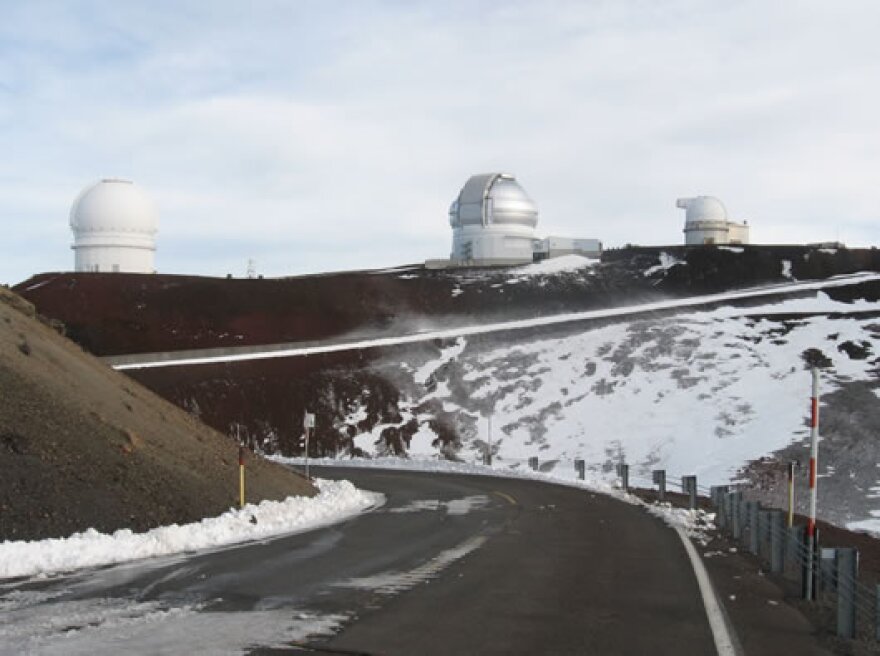Observatories on Hawaii's tallest mountain have shut down operations in response to the governor's stay-at-home order aimed at preventing the spread of the coronavirus.
The shutdown of telescope operations on Mauna Kea is expected to affect more than 500 technicians, astronomers, instrument scientists, engineers, and support staff who work at the Big Island summit and at observatory bases below, The Honolulu Star-Advertiser reported Sunday.
Democratic Gov. David Ige signed a March 23 proclamation ordering state residents to remain at their homes from March 25 through April 30, exempting workers deemed essential.
For most people, the coronavirus causes mild or moderate symptoms, such as fever and cough that clear up in two to three weeks. For some, especially older adults and people with existing health problems, it can cause more severe illness, including pneumonia and death.
Most of the work at the Mauna Kea observatories is federally funded so few, if any, employees are likely to be laid off or furloughed, said Doug Simons, director of Canada-France-Hawaii Telescope.
This is the second time operations on Mauna Kea have shut down in a year, following demonstrations that blocked the mountain's access road for more than five months beginning in July.
Opponents of the Thirty Meter Telescope said the project, estimated to cost $2.4 billion, will desecrate land held sacred to some Native Hawaiians.
Last year’s shutdown interrupted hundreds of programs run by scientists from around the world and affected about 100 scientific publications that would have used data from Mauna Kea.
Simons expects the same could happen for every month that the Mauna Kea observatories do not operate.
”It’s a big blow,” he said, adding that some scientific discoveries are likely to be lost. “We don’t know things we miss because we weren’t looking.”
The cancellation includes the second run of the Event Horizon Telescope, the global array that includes the James Clerk Maxwell Telescope on Mauna Kea.
The array, which last year provided the first image of a black hole, was supposed to begin observations at the end of March to build on the first set of results.
A combination of weather patterns and celestial mechanics the observations possible only from late March to early April.



